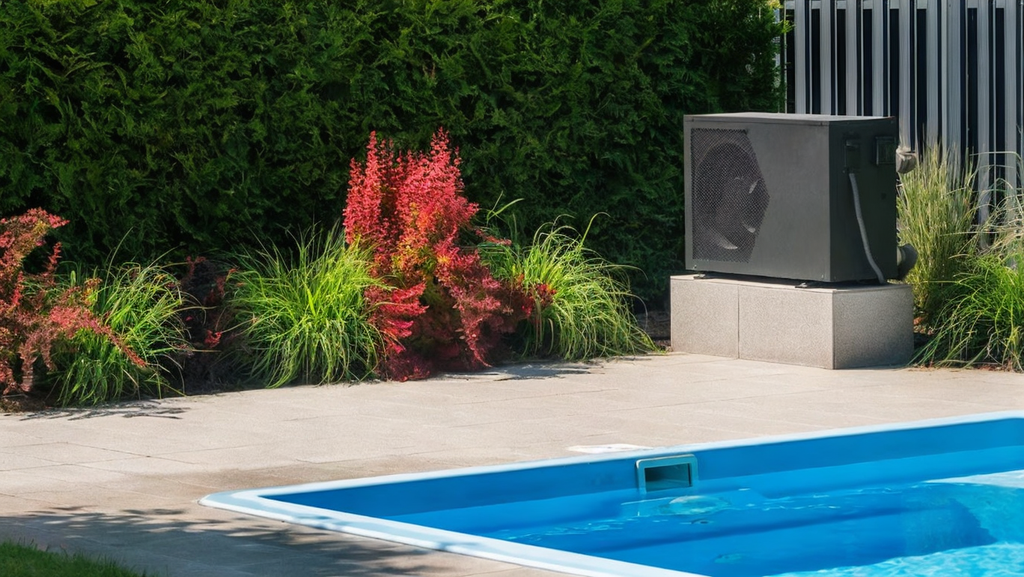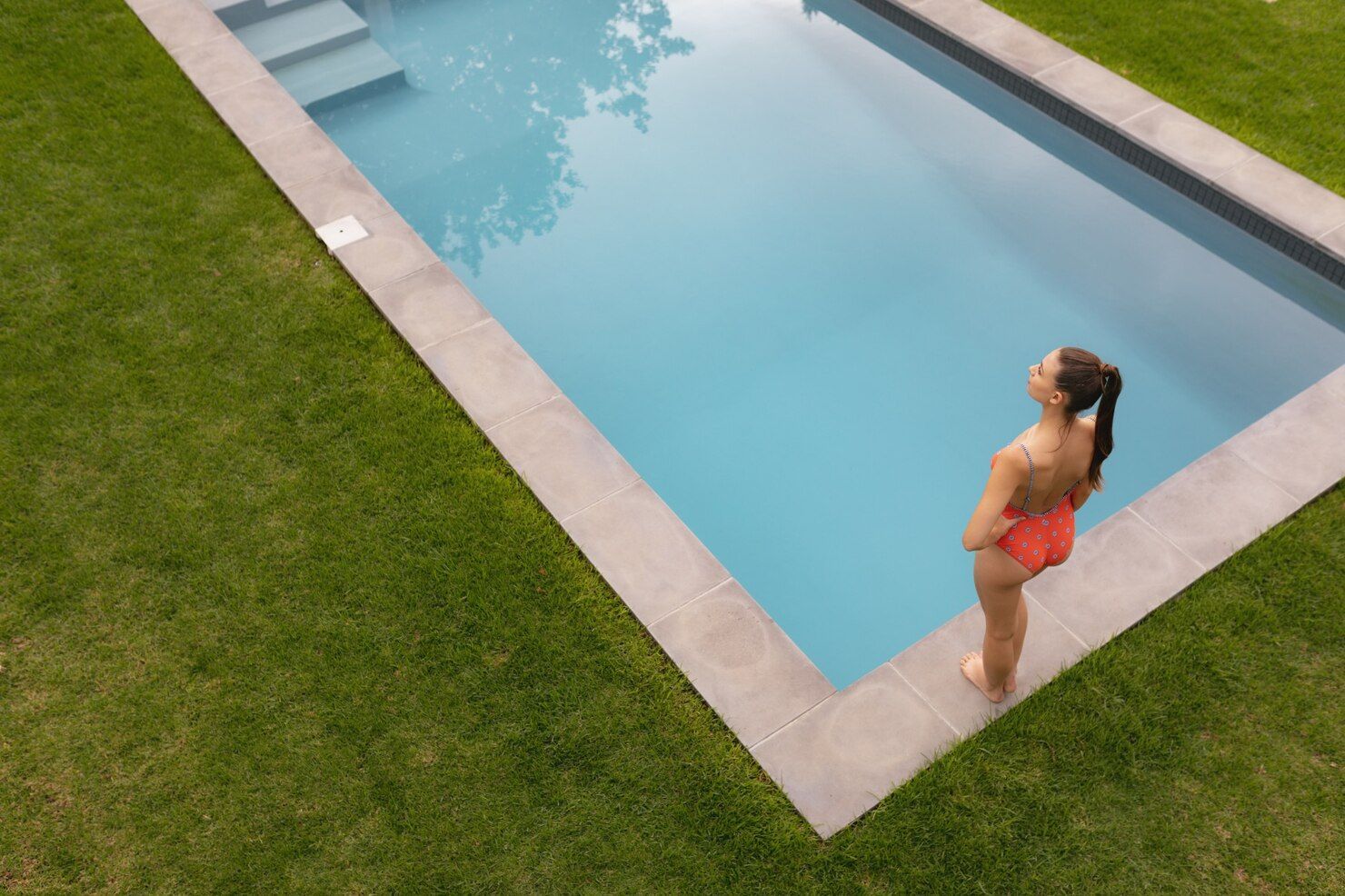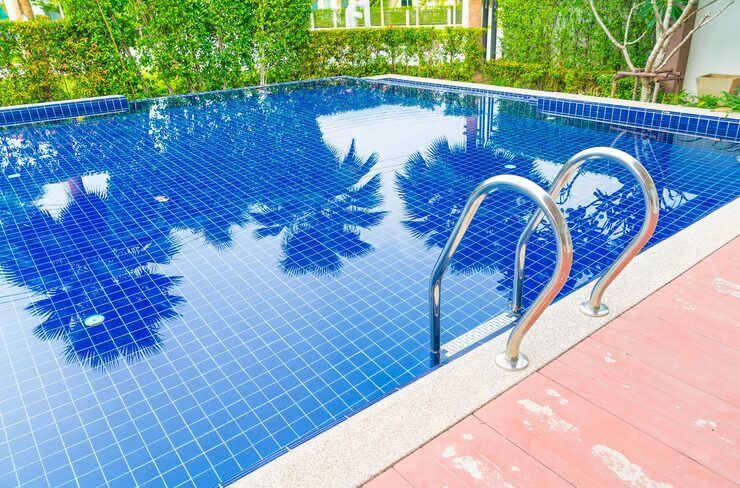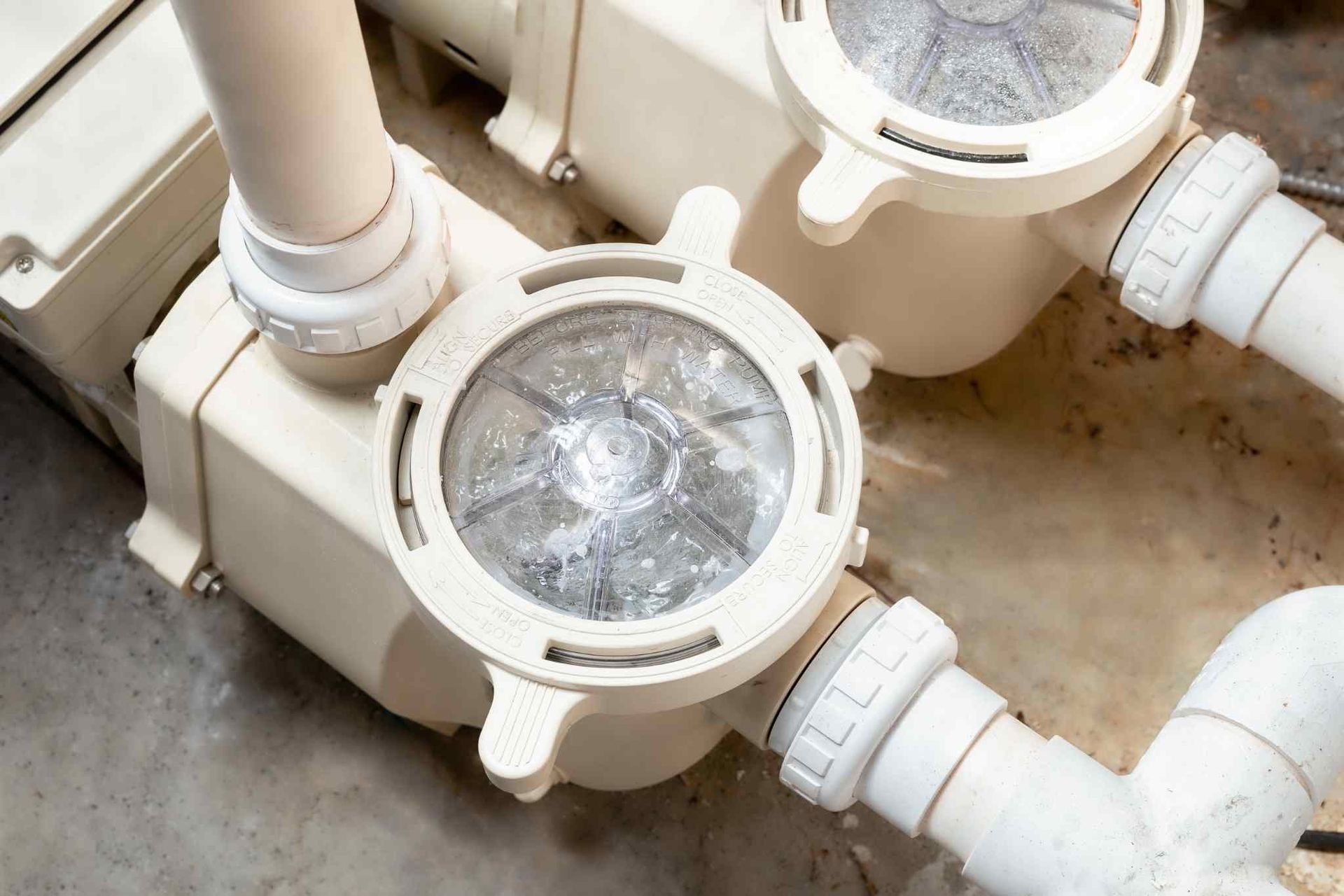Gas vs. Electric Pool Heaters: Which One’s Right for You?
When the temperature drops, your pool doesn’t have to go unused. A pool heater can turn your backyard into a year-round retreat — letting you swim comfortably even when it’s chilly outside. But here’s the big question many
homeowners ask during pool renovations near me searches: should you choose a gas or an electric pool heater?
Table of Contents
- Gas Pool Heaters
- Electric Pool Heaters
- How to Choose the Right Pool Heater for Inground Pools
- Is It Cheaper to Run a Gas Heater or an Electric Heater?
- Is It Worth Changing from Gas to Electric Heating?
- Frequently Asked Questions (FAQs)
- Ready to Upgrade? Talk to the Pool Heating Experts at FJV Construction
Key Takeaways
✔ Gas pool heaters provide faster heating but cost more to operate long-term.
✔ Electric pool heaters are more energy-efficient and eco-friendly for regular use.
✔ Climate and pool size play a major role in choosing the best pool heater.
✔ Upgrading during pool renovations improves comfort and long-term savings.
✔ Proper installation and maintenance extend any pool heater’s lifespan and efficiency.

Gas Pool Heaters
Gas pool heaters are a popular choice for homeowners who want fast heating and flexible performance. They use natural gas or propane to quickly warm up your pool — no matter how cold it is outside.
Pros
Rapid Heating
If you want to enjoy your pool at a moment’s notice, gas pool heaters deliver. They can raise the water temperature quickly, even on cooler nights, making them ideal for spontaneous swims or weekend use.
Unaffected by Climate
Gas heaters don’t rely on air temperature to perform. They’re effective in cold climates, so they’re a strong choice for pool owners in New England or anywhere the temperatures dip.
Lower Initial Cost
Compared to electric systems, gas models typically have a more affordable upfront cost — a smart option if you want reliable heating without a large investment right away.
Fuel Source Flexibility
Whether you have access to natural gas or prefer propane, gas pool heaters can be configured to match your setup, giving you flexibility during installation.
Cons
High Operating Costs
Fuel costs can add up quickly, especially if you use your heater often. Over time, electric systems may be cheaper to operate.
Shorter Lifespan
On average, gas heaters last around 5–10 years, depending on maintenance and water chemistry.
Environmental Impact
Gas models produce emissions during combustion, making them less eco-friendly than electric alternatives.
Noisier
While not excessively loud, gas units tend to produce more noise during operation compared to their electric counterparts.
What Is the Life Expectancy of a Gas Pool Heater?
A gas pool heater typically lasts about 5 to 10 years, though well-maintained models can go beyond a decade. Factors like water balance, usage frequency, and regular servicing affect its longevity.
If you’re planning pool renovations near me, upgrading your heating system is a smart move — new models are more efficient, quieter, and built with corrosion-resistant materials that extend their lifespan.

Electric Pool Heaters
Electric pool heaters (often called heat pumps) are known for their efficiency and sustainability. They extract warmth from the surrounding air and transfer it to your pool water, making them an eco-friendly choice for homeowners who swim often.
Pros
Lower Operating Costs
Although the initial price may be higher, electric pool heaters are energy-efficient and cost less to run over time. In fact, the U.S. Department of Energy reports that running a typical heat pump at 85°F year-round can save homeowners up to $400 annually in energy costs compared to gas models.
Longer Lifespan
Electric models can last 10–15 years or more with proper care, making them a great long-term investment.
Eco-Friendly
Electric pool heaters produce no direct emissions. For homeowners focused on sustainability, this makes them the best pool heater for reducing your carbon footprint.
Dual Function (Some Models)
Some advanced models can both heat and cool your pool water — ideal for maintaining the perfect temperature all year long.
Cons
Higher Initial Cost
Electric pool heaters often cost more upfront than gas units, though they make up for it through lower monthly bills.
Dependent on Ambient Air Temperature
Because they pull warmth from the air, electric systems become less efficient in colder conditions.
Slower Heating Time
It takes longer for electric heaters to raise the water temperature, so they’re best for maintaining consistent heat rather than rapid changes.
Requires Electrical Upgrades
Older homes may need an electrical system update to accommodate the power demands of an electric heater for pool installations.
Is an Electric Pool Heater Worth It?
Yes — if you swim regularly and value energy efficiency, electric pool heaters are absolutely worth it. They provide consistent warmth, low maintenance, and lower long-term costs. Homeowners searching for the best pool heaters often find that electric systems deliver steady comfort and savings over time.
For Danbury property owners investing in pool renovations near me, an electric pool heater for inground pool setups offers excellent performance and durability.
How to Choose the Right Pool Heater for Inground Pools
Finding the best pool heater for inground pools involves considering factors like comfort, performance, and long-term value. Whether you’re installing a new system or planning pool renovations near me, the right pool heater ensures you enjoy warm, energy-efficient swimming year-round.
Below are key factors to guide your decision:
1. Consider Your Climate
Your local climate plays a major role in choosing the right heater for pool performance:
Colder Climates (like Connecticut)
A gas pool heater is best if you want rapid heating and consistent warmth regardless of outside temperature.
Mild or Warm Regions
An electric pool heater (heat pump) operates efficiently when air temperatures are moderate, offering steady heat at a lower cost over time.
Pro tip:
If your pool is shaded or used mostly at night, a gas model may be more effective even in warmer months.
2. Determine Pool Size and Usage Frequency
The larger your pool, the more heating power it requires.
- For large inground pools: Choose a high-capacity pool heater with sufficient BTU output to maintain your desired temperature.
- For frequent swimmers: An electric pool heater for inground pool setups is ideal for maintaining consistent warmth daily.
- For occasional use: Gas heaters are better for quick heating before weekend swims.
3. Compare Energy Efficiency
Look for energy ratings to maximize savings:
- Electric pool heaters are more efficient in steady use and offer lower long-term costs.
- Gas heaters are less efficient but provide faster results.
- Opt for models with automatic temperature controls or energy-saving modes to reduce operating costs.
4. Assess Installation and Maintenance Needs
Every pool heater type has different setup and upkeep requirements:
- Gas heaters: Require proper venting and regular servicing to maintain safe combustion.
- Electric heaters: Need adequate electrical supply and minimal routine maintenance.
- Professional installation: Always hire experienced technicians — like FJV Construction — to size, install, and configure your system correctly for maximum performance.
5. Budget for Both Upfront and Long-Term Costs
The average cost to install a pool heater ranges from $1,600 to $5,200, including both equipment and professional installation. Balance your short-term investment with long-term savings:
- Gas pool heaters: Lower initial cost but higher ongoing fuel expenses.
- Electric pool heaters: Higher upfront cost, lower monthly bills.
Costs vary—ask
trusted contractors like FJV Construction for a cost analysis to find the best pool heater for your specific energy rates and pool usage.
Is It Cheaper to Run a Gas Heater or an Electric Heater?
In the short term, gas heaters cost less to install but more to operate. Electric heaters, while pricier upfront, use less energy overall and save money over time.
If you’re doing pool renovations near me, FJV Construction can help calculate your potential savings and recommend whether a gas or electric heater for pool makes the most sense for your property.
Is It Worth Changing from Gas to Electric Heating?
Upgrading from a gas to an electric pool heater can be a smart, forward-thinking investment — especially if you’re already considering pool renovations near me or modernizing your backyard setup.
When a Change Makes Sense
- Your gas pool heater is nearing the end of its lifespan (usually 8–10 years).
- Fuel costs are rising faster than electricity rates.
- You want to reduce your home’s carbon footprint.
- You’re looking for a quieter, low-maintenance heater for pool performance.
Why Electric Pool Heaters Are a Smart Upgrade
- Energy Efficiency: Electric systems transfer existing heat instead of generating it, making them 80–90% more efficient than gas.
- Eco-Friendly Operation: Produces no direct emissions — a win for sustainability-conscious homeowners.
- Low Maintenance: Fewer moving parts mean fewer breakdowns and less servicing.
- Consistent Comfort: Ideal for daily swimmers who prefer steady, comfortable temperatures.
Switching from gas to electric not only cuts long-term costs but also brings your backyard up to modern standards of efficiency and comfort.

Frequently Asked Questions (FAQs)
Can I use a pool heater with a saltwater pool?
Yes — both gas and electric pool heaters can safely be used with saltwater systems. Just make sure your heater features a corrosion-resistant heat exchanger (such as titanium) for long-term durability. During pool renovations near me, professionals like FJV Construction can recommend the best pool heater materials for your setup.
How can I make my pool heater more energy efficient?
You can make your pool heater more energy efficient by using a solar pool cover to retain warmth, keeping your water chemistry balanced, and scheduling regular maintenance. These simple steps reduce heat loss, prevent damage, and help your heater for pool run more efficiently year-round.
What size pool heater do I need for my inground pool?
Choosing the right size depends on your pool’s surface area, desired water temperature, and local climate. A properly sized pool heater for inground pool will heat faster and operate more efficiently. FJV Construction can calculate your exact BTU requirements during your next pool renovations near me project.
Can I install a pool heater myself?
Installing a pool heater is not a DIY job. Both gas and electric systems require professional setup for safety, code compliance, and efficiency. Hiring experts like FJV Construction ensures your best pool heater operates properly and safely from day one.
How often should I replace my pool heater?
Most pool heaters last 8–15 years depending on type, usage, and maintenance. If you notice longer heating times, higher energy bills, or corrosion, it may be time to replace your heater for pool. Upgrading during pool renovations near me can improve both energy efficiency and comfort.
Ready to Upgrade? Talk to the Pool Heating Experts at FJV Construction
Whether you prefer the rapid power of gas or the steady efficiency of electric, the right pool heater can make every swim more enjoyable.
If you’re searching for
pool renovations near me or need expert help choosing the best pool heater for inground pool,
FJV Construction in Danbury, CT, is ready to help.
Contact us today to schedule your consultation.




